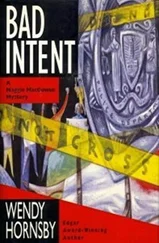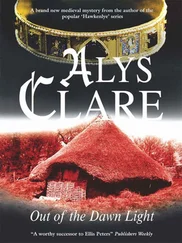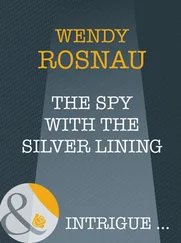“I’ll work on it.” If only it were that easy.
When Mom had her mind made up, it was pointless trying to argue with her. The truth was, though my producer had approved the Normandy project, the network goons had not. And maybe would not. Even my Uncle Max, who was both my lawyer and my agent, had not been able to budge them this time. The issue, I was beginning to understand, was not the project, but me.
When we said good-bye, I gathered my dishes and headed back inside, thinking, tomorrow is another day.
I washed my glass and bowl and went upstairs to try on Mom’s black dress. It draped, it twirled, it fit quite well; the knit fabric was accommodating. Mom, who is taller than I am, had to wear flats with the dress. With heels, the length would be just fine for me. I had a dress to wear Friday night.
Mom owned a small collection of family jewelry that she left behind for my cousin Susan and me to divide. Other than the ruby earrings that Mom still wore-the matching necklace had gone to someone else a generation earlier-there was nothing of significant monetary value in the lot. Because I had no genetic or legal relationship to Mom or her family, I had qualms about keeping for myself anything that had come from her side of the family, even though Mom had scolded me to get over my reluctance.
From Isabelle, my late bio-mom, I had already inherited some very nice and very old pieces of jewelry that I appreciated for their beauty, but that had no significance to me; I never knew Isabelle. On the other hand, there were several things that I remembered Mom wearing on special occasions, and that made them precious to me. But sweet, warm memories did not change my opinion about rightful ownership.
The best piece rested inside a flat red leather box; a late nineteenth-century brooch shaped like a dragonfly. It was big, nearly three inches from wingtip to wingtip, but it weighed almost nothing. The body and wings were little more than open platinum filigree studded with bright gemstones: garnet, opal, tourmaline, zircon, peridot. I knew it was the signature on the back that made it valuable, and not the materials it was made from. And for me, all of its value was in its association with Mom. When she wore the rummage-sale black dress, she wore the brooch pinned high on her shoulder, as if the dragonfly had just landed there and was about to take off again. To a kid-me-it was magic.
I decided that the dress and the brooch would have at least one more outing together. I carried the red leather box and the dress into my old bedroom thinking that I could easily shop for shoes in Berkeley in the morning.
When I had put the dress away, I returned to Mom’s room and began bagging clothes and boxing books. It only took a short time before her bed and the floor next to it were clear. Packing is the easy part; the hard part is shifting the stuff from place to place. Six trips down the stairs and into the garage later, the clothes and books were packed into the bed of Mike’s pickup truck, ready to be delivered in the morning.
Tired after a long day, I poured myself another glass of wine and curled up in one of the big leather chairs in Dad’s study-I was keeping the chairs-to watch Casablanca for the umpteenth time. Just as Ilsa was telling Sam to play it for her, “for old times’ sake,” there was a great banging on the front door. I set my wine aside and went to the entry hall to see what the racket was.
Through the glass panels on the front door, under the porch light, I could see a woman, red in the face, seemingly the worse for drink, pounding hard enough to rattle the windows. I don’t know if she could see me in the darkened foyer as clearly as I could see her, but she obviously saw some movement. She screamed, “Maggie, you bitch! Kevin, come out here!”
That’s when I knew who she was.
I pulled out my phone, found Kevin’s number, and hit Dial.
When he answered, I said, “Your wife is on my front porch.”
“What’s she doing?”
“Banging on the door, calling for you. Where are you?”
“On my way over. Sorry.”
“Should I open the door?”
“Definitely not.” He coughed. “Maggie, do me a favor and go back inside. Don’t watch.”
“If you say so.” But I was concerned that Lacy might hurt herself, so I slipped into the shadows and watched her from a side window. After a few minutes she wore herself out and slumped down onto the porch with her back against the door, and wept.
Kevin arrived shortly after that in his unmarked police car, argued with her for a moment before he took her by the upper arms, set her on her feet, and marched her down the front steps and strapped her into the front passenger seat of his car. Before he got in on his side, he looked back at the house, searching for something he apparently did not find.
I stood there in the dark, feeling like an intruder into a very private world as the taillights of Kevin’s car faded into the night. I now knew who had been in the room with Kevin when I spoke with him on the phone that afternoon.
Out of habit, whenever I visited my parents, I slept in my old bedroom, though there was nothing left of me, or of mine, in that room. Long ago, my single bed was replaced by a double, the walls were painted and new curtains were hung. It was only when the lights were out and I lay there in the dark that I felt I was back in a familiar place.
Light from the street, interrupted by the leaves on the trees in the backyard, made the same blue-gray lace on the ceiling, framed by the skewed, angular shadows of the windowpanes, as always. I fell asleep listening to the usual lullaby of night sounds: a neighbor’s dog, the occasional car or a back door closing, the creaks and groans of the old house settling, wind through the branches of the sycamore below my open window.
Sometime, deep in the night, I jolted awake, aware that something in the rhythms of the night had been disturbed. I sat up in bed and listened, heard nothing, but got up anyway, feeling uneasy. Ever since my daughter was tiny, I have always slept with the bedroom door ajar so that I can hear the house. I can’t sleep otherwise, especially when I am alone. Barefoot, I tiptoed to the door and peered out into the hall. The hall was lit only by street light coming in from the window at the far end, but I could see that no one was there.
Dad, for his own peace of mind, had placed a mirror in the stairwell positioned so that he could see the downstairs hall all the way to the entry and the window in the front door without going down the stairs. I crept along the side of the hall, avoiding the squeakier center, until I could see into the mirror. There was still no sound, but I could see a disturbance in the pattern of shadows coming from the door to Dad’s den; someone was in there. When I heard what sounded like a drawer being slowly opened I slipped into the nearest bedroom, my brother Mark’s, and dialed 911. In a whisper, I gave the dispatcher my address and told her that someone was inside the house. She told me to stay on the line and to stay upstairs, out of sight. I told her I would stay out of sight, but I needed to hang up so that the intruder wouldn’t hear the phone or see brightness from its screen. She was protesting when I turned off the phone and dropped it into my pajama pocket.
I waited to see if I had already alerted the intruder before I went back out into the hall where I could see into the mirror again. Shadows shifted along the floor outside Dad’s office as someone moved about inside. Suddenly, a narrow shaft of bright light flew out through the gap between the doorjamb and the door’s hinged edge, showing me, roughly, where in the room the burglar was; near the desk.
After a while, the intruder either grew more bold or more desperate to find whatever he was looking for-there was nothing of value to be found, other than some of Dad’s books-and made the occasional noise moving things around. Maybe he made enough noise that he didn’t hear the police pull up outside.
Читать дальше












